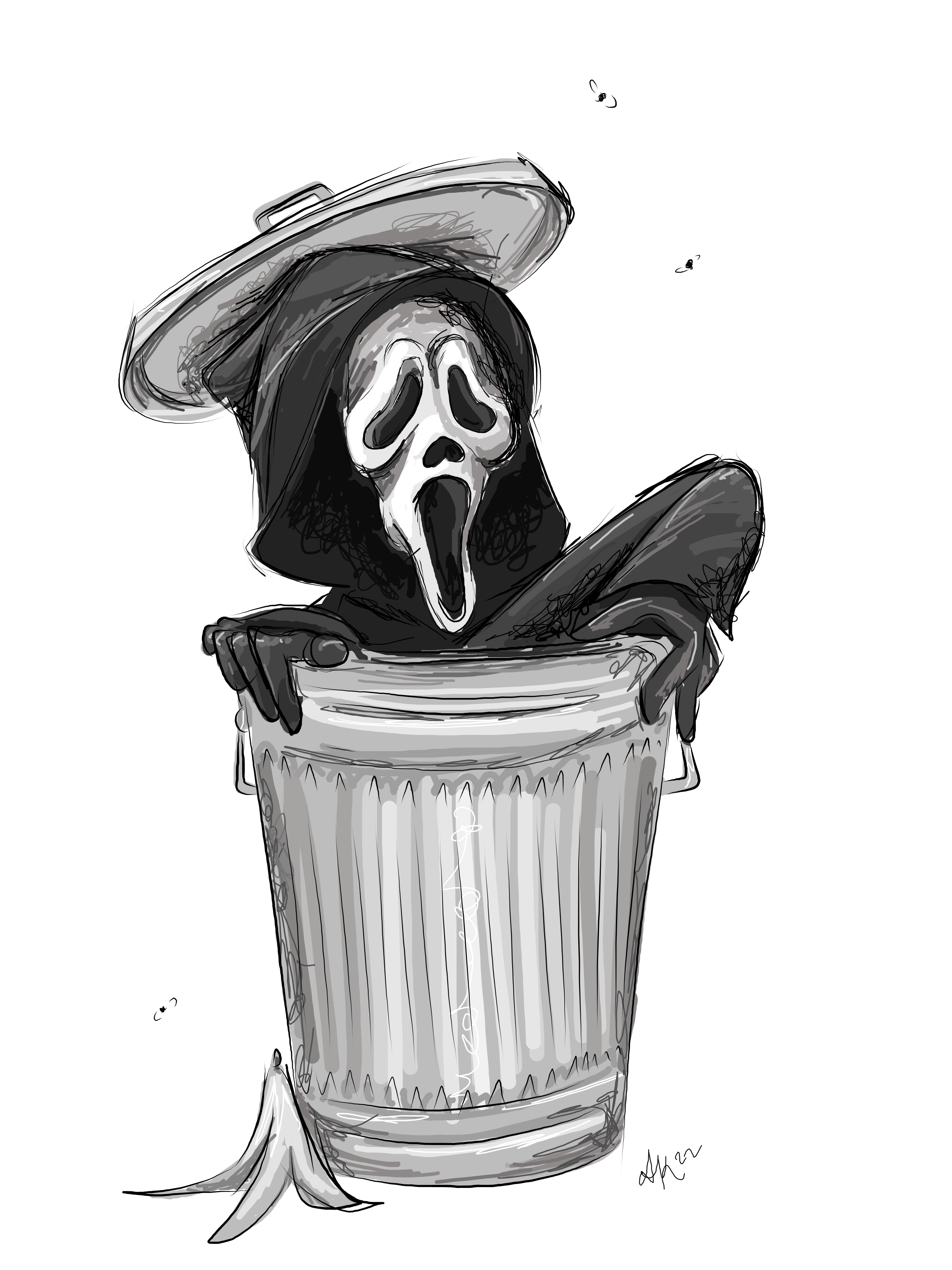Meta cash grab leaves horror aficionados screaming for refunds
In an era littered with subpar reboots of beloved horror movie franchises, it’s about time Hollywood executives took a stab at the infamous Scream franchise. Following the death of the series’ full-time director, Wes Craven, Scream (2022) is the franchise’s first feature film that lacks the touch of the king of horror himself. Matt Bettinelli-Olpin and Tyler Gillett have taken it upon themselves to reboot the beloved vehicle into a likely multi-installment series; however, if this is the beginning of a new trilogy, things are off to a rocky start.
Everyone knows that Scream films aren’t your run-of-the-mill slasher flicks. Infused with self-awareness, meta dialogue, and plays on the classic who-dunnit trope, Scream offers an elevated take on horror classics. Scream (2022) attempts to continue this tradition in an exhausting fashion, pushing the pedal down on the self-aware dialogue to an unbearable degree. The film sacrifices characterization for meta conversations that don’t evolve the depth of the characters at all, and the audience is left only with forgettable characters and an even more forgettable plot.
Scream (2022) also severely underestimates the value of “legacy characters” to the audience within their film, providing Sydney Prescott (Neve Campbell, Skyscraper), Gale Weathers (Courtney Cox, Shameless), Dewey Riley (David Arquette, Spree), and even a questionable interpretation of serial murderer Billy Loomis (Skeet Ulrich, Riverdale) with little screen time for full-time fans to enjoy. The only emotion the film draws from the audience comes from these legacy characters, but it isn’t because of any particularly good writing. Instead, the feeling comes from the previously established relationships derived from four prior films. Everything else seems lifeless and derivative, and the lack of talent in the writer’s room leaves this latest Scream incarnation falling directly into its own meta traps supposedly established for comic effect.
One thing the newest installment to the franchise gets right is bringing about a certain brutality unheard of in the franchise’s four predecessors. The chase scenes, despite the poor writing often accompanying them, will leave audiences on edge, basking in the revolutionary playfulness of an already devious Ghostface character. The opening scene revives the iconic cat-and-mouse trope with a merciless edge unseen in the other films, with just enough nostalgia to satisfy diehard fans. Plain and simple, the scenes featuring a masked Ghostface are just cool, and because of the flavorless cast of characters, it sometimes leaves you rooting for the cloaked psychopath. The overall fill will, however, leave you ultimately disappointed as it accumulates a shockingly low kill count, riddled with unbelievable survivals that force audiences to beg the question: “how are they not dead!?”
The film also relentlessly spits in the face of the other Scream installments, as well as horror reboots in general. Scream (2022) desperately insists it’s a maverick of a reboot, pleading for audiences to recognize its uniqueness, yet it unfortunately falls into the exact same traps that it mocks other films for. It’s predictable, flavorless, uninteresting, and attempts to piggy-back off of the successes of the iconic franchise whilst defaming those beloved films and abandoning the stories of the legacy characters we know and love. It also sets up a convenient criticism on “fandom culture” as an obvious measure to make critics feel uncomfortable putting their grievances out there, in fear of proving the movie’s incredibly convoluted social commentary right. It also, unlike the other Scream films, lacks any and all subtlety in this social criticism.
The characters move beyond flavorless, and are borderline unlikeable. I cannot exaggerate the extent to which I found myself rooting for Ghostface, but when the masks came off and we got our “big reveal,” I was left rooting for nobody. The killers’ manic performances failed to compel and convince audiences to the degree that Billy and Stu (Matthew Lillard, Scooby-Doo) once did. I entered the theater blissfully unaware of the bland and over-the-top ironic cesspit that awaited me. I left feeling so deprived and disgusted that I rushed home to turn on Scream (1996) to cleanse my palate.
Scream (2022) fails to deliver in every standard which made the originals so iconic, and its layers of dialectic irony beat the once untouchable franchise into submission, leaving even the most diehard of fans wanting to kill the franchise themselves. It’s clear now that Wes Craven’s untimely departure from his artistic masterpiece left the franchise doomed to fail. Without Craven’s guiding hand, the film falls into the very potholes it establishes as a self-aware horror bastion, and committed fans are left to pick up the pieces of the horror titan they once cherished. It’s indisputable that the Scream franchise found great success in its witty interpretations of the horror genre of the first four classics, yet, as Dewey Riley so well put it, “this one just feels different.”
Grade: C-
by Hunter Willis
Oshkosh West Index Volume 118 Issue IV
January 31st, 2022
